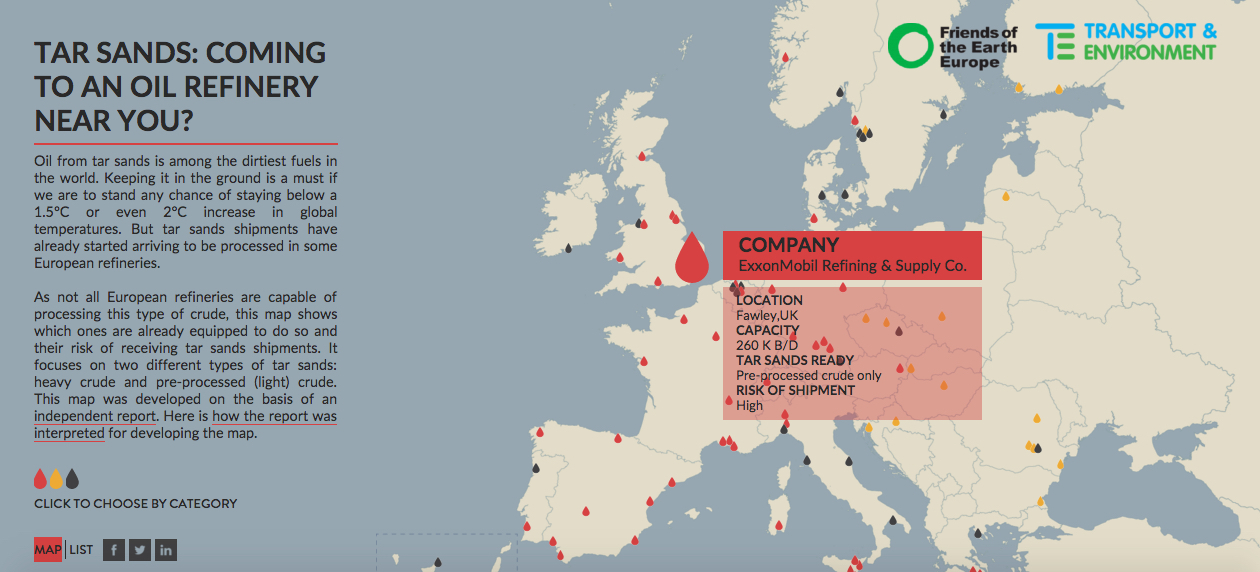
Interested in this kind of news?
Receive them directly in your inbox. Delivered once a week.
Extracting and refining tar sands produces three to four times more global warming emissions than conventional crude [3]. The map and study demonstrate the need to step up efforts to keep tar sands out of Europe, in order to keep global warming below 2°C and to ensure a transition to a democratic and renewable energy system.
Laura Buffet, fuels policy officer at Transport & Environment, said: “We know that fossil fuels, and especially the ultra-high-carbon ones like tar sands, must stay in the ground if we are to avoid the worst effects of climate change. But now we know that more than half of Europe’s refineries ignore this inconvenient truth. Europeans have a right to know where the oil they burn comes from and how dirty it is. This study shows the urgency of the EU labelling fuels’ carbon intensity and reducing it.”
President Barack Obama’s rejection of the Keystone XL pipeline has sent a clear signal that tar sands should not be part of the energy mix [4]. Yet two weeks before the opening of the global climate negotiations in Paris, it is clear that Europe has the capability to process these climate-killing fuels while the EU continues to do nothing to stop them entering the Europe. A 2014 report by NRDC showed that unrestricted tar sands import could increase Europe’s climate impact by an equivalent of an extra 6 million cars on the road [5].
Colin Roche, extractive industries campaigner at Friends of the Earth Europe, said: “Tar sands are deadly for the climate, yet the EU’s energy policy is giving a lifeline to this dangerous industry. Our map shines a light on oil market and refineries, so that citizens can locate nearby refineries and demand national ministers to keep tar sands out of Europe.Tar sands projects, in Canada and elsewhere, should be immediately terminated, and investments redirected towards clean, renewable and equitable energy projects.”
The first shipment of Canadian tar sands oil to Europe arrived at Bilbao, Spain, in June 2014 [6]. Initial proposals by the European Commission to implement the Fuel Quality Directive would have discouraged the use of high-carbon fossil fuels like tar sands in road transport fuels, however the final texts failed to do so.
Notes to editors:
[1] Assessment of the European refining sector’s capability to process unconventional, heavy crude oils, MathPro Inc
https://www.transportenvironment.org/sites/te/files/FoEE_TE_03_Final_Proj…
[2] Tar Sands Refineries of Europe map, produced by Friends of the Earth Europe and Transport & Environment
https://www.transportenvironment.org/refineriesmap
[3] https://www.nrdc.org/energy/files/keystonexlmyths.pdf
[4] Friends of the Earth Europe, US President rejects Keystone XL pipeline: https://www.foeeurope.org/US-President-rejects-KeystoneXL-061115
[5] https://www.transportenvironment.org/publications/nrdc-report-increased-t…
[6] https://www.theguardian.com/environment/2014/jun/06/first-tar-sands-oil-s…


